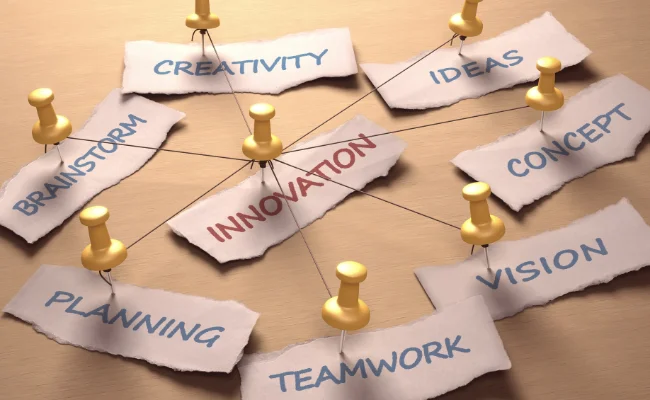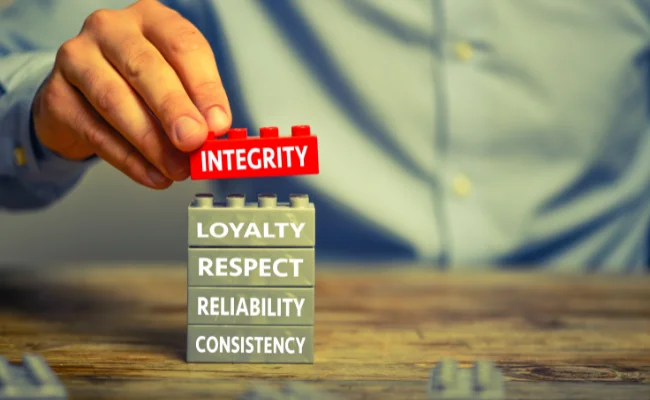Cultivating Innovation with Libba Pinchot, Ph.D.
“The antidote is action.” – Dr. Libba Pinchot
I had the pleasure of speaking with Dr. Libba Pinchot, a nationally recognized expert in helping leaders achieve triple bottom line success through widespread innovation and intrapreneurial engagement.
Dr. Pinchot specializes in creating organizational transformations designed to spread throughout the company, the supply chain, and beyond.
We discuss:
- How cultivating innovation can save company cultures
- Why the innovation mindset resides beyond the individual
- The definition of integrity & how it relates to the great resignation
How cultivating innovation can save company cultures

What is innovation? You can describe it in several ways, but the simplest definition is meeting the needs of the future right now.
“The point about innovation is that there was a long tradition of innovation being very top down in these big organizations.” Dr. Pinchot explains. “And it wasn't very successful. The number of people, and the number of brains in the organization, are spread throughout the employee base. Everybody has an opportunity to improve the way they do work.”
Innovation thrives when employees are engaged and supported. A supported team makes changes that benefit the company, the future, and society. People are natural innovators and do best when there’s room for play and experimentation.
Barriers to innovation are often in the shape of profit-driven initiatives—if you can’t prove an innovation is profitable, it will likely not make it off the floor.
“That's the short-term focus of companies. They are not used to investing in things that have a long payoff. And yet, if you're meeting the needs of the future, a lot of those things will have a long payoff.” Dr. Pinchot continues.
True innovation requires faith, trial and error, and the willingness to look beyond your immediate surroundings. To cultivate innovation means gathering multiple perspectives and using that knowledge to shape out-of-the-box solutions.
Why the innovation mindset resides beyond the individual

Teamwork really does make the dream work when it comes to ideating around improved workflows, processes, and team structures. Siloed solutions will rarely go the distance.
“Some of the biggest cost savings around sustainability have been when sustainability people in organizations have gotten together, done some long-term purchases of power, and saved millions and millions of dollars so that the finance people say, ‘Oh, my God, this is so incredible, and would you please do more.” But that's a cross-organizational endeavor that kind of breaks the rules.” Dr. Pinchot shares.
Leadership is responsible for creating the proper environment where they welcome small-scale mistakes and cross-departmental collaboration. People must be free to fail their way to success.
“Are they [mistakes] above the waterline or below the waterline? Think of a boat and drilling a hole in a boat. Is it above the waterline or below?” Dr. Pinchot shares.
People can embrace most mistakes as learning opportunities. There has to be room for play and exploration for a company to reach its full potential, and that freedom comes from company culture. What is that environment based on? Dr. Pinchot advocates for an employee-focused culture for the best results.
Companies are waking up to the fact that they're losing talent because they’re lacking a purpose-driven company.
The definition of integrity & how it relates to the great resignation

People are not settling for being cogs in the wheel. They’re looking for more than a clock-in-clock-out existence—they want to make a difference.
“One thing I've been thinking about in the last three or four months is the price of disengaged employees, the price of inaction. It's a psychological price, too.” Dr. Pinchot shares, “We have a lot of despair in society now for very legitimate reasons—the health crisis among them. Leading by inaction in itself produces a kind of despair.”
Integrity relates directly to fulfillment at work. We all have moral codes that drive us, whether we’re fully aware of them or not.
“There's something called moral injury.” Dr. Pinchot explains, “It's a phrase adopted from the Veteran Association, for people who were in war and had terrible psychological trauma. And it was often not so much what they had done, but what they were unable to change.”
To some extent, we all walk a fine line between needing to keep existing systems running due to societal demand or dependency, and knowing that some current systems are damaging the future.
Dr. Pinchot points to a recent study of 10,000 people between the ages of 16 and 24 across multiple countries. “The researchers said that 75% of these 10,000 youth thought the future was frightening, and 60% say they were extremely worried and that they also felt betrayed by the government or the adults around them—the next generation up.” she explains.
This study may seem demoralizing, but if we look closer, we can discern that this type of thinking is a sign of mental health and strong integrity in these younger generations. “Their mindset is more in tune with reality.” Dr. Pinchot says.
In line with that mindset, companies need to be able to walk their talk and be earnest about their targets when it comes to making the future safe for the next generation. “They have to have bold targets, they can't just have easy targets.” Dr. Pinchot continues, “And they have to not lobby for the opposite of their targets. That's what I mean by Integrity—wholeness.”
Despair can be transmuted into hope. We're always healing our moral injuries through our work, it's continuous. People have a great capacity for good and positive change.
Innovation is a bottom-up process. We all have a hand in creating a better future. What is one small action you can take today that supports a brighter tomorrow?
Be sure to check out Dr. Pinchot’s full episode for more discussion around the importance of innovation, and learn more at Dr. Pinchot’s website.








